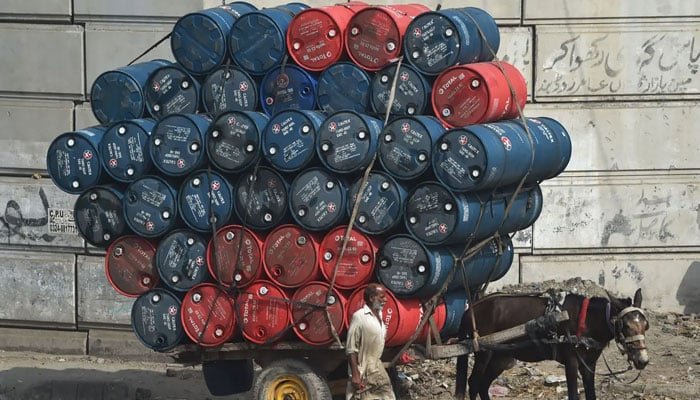“The Ministry of Interior and the FBR are urged to take immediate and decisive action to rectify this critical issue,” stated the OCAC letter, stressing the urgency of the matter.
In a bid to combat the widespread smuggling of Iranian petroleum products, the Ministry of Energy has called upon the Ministry of Interior and the Federal Board of Revenue (FBR) to take decisive action. The rampant smuggling, already resulting in the closure of a refinery unit and endangering refinery upgrade agreements worth billions, has prompted urgent government intervention.
The Petroleum Division of the Ministry of Energy issued a formal request to the Ministry of Interior and the FBR, urging them to address the pressing issue, which has inflicted significant damage on the refinery sector and the overall oil supply chain.
This call to action follows a letter from the Oil Companies Advisory Council (OCAC) to the Special Investment Facilitation Council (SIFC), issued just two weeks prior, sounding the alarm on the escalating problem of petroleum smuggling.
The OCAC’s communication underscored the severity of the issue, highlighting its direct threat to forthcoming investments in refinery expansion and upgrade projects as outlined in the Oil Refining Policy for Upgrading Brownfield Refineries, 2023.
The council emphasized that such illicit activities not only impede economic growth but also imperil the potential for substantial investments in refinery enhancements. Moreover, the repercussions extend beyond the refinery sector, impacting the profitability of oil marketing companies, dealers, and disrupting operations along the White Oil Pipeline.
Presently, refineries find themselves burdened with excessive stocks of High-Speed Diesel (HSD) due to the prevalence of smuggled fuel in the market. Consequently, refinery throughput has dwindled, leading to reduced production of other petroleum products and disrupting the entire oil supply chain.
“The Ministry of Interior and the FBR are urged to take immediate and decisive action to rectify this critical issue,” stated the OCAC letter, stressing the urgency of the matter.
Refineries have tethered their investment in upgrade projects to the assurance of producing Euro-V diesel and petrol, thereby mitigating the influx of smuggled petroleum products from Iran on a sustainable basis. Failure to address the smuggling menace would render refinery expansion and upgrades economically unfeasible, as investments have been predicated on achieving optimal capacity utilization.
The ongoing smuggling of petroleum products poses a serious threat to these projects, potentially compelling prospective investors to reassess their commitments. Refineries had earmarked investments ranging from $5-6 billion for upgrades; however, the adverse effects of Iranian smuggled products have severely hampered their operations.
Attock Refinery Limited recently had to suspend operations of its primary unit due to the surplus of HSD, underscoring the immediate impact of the crisis. Other refineries are similarly grappling with operational challenges, with the non-lifting of HSD exacerbating the situation. Stockpiles of HSD have surged to over 650,000 tonnes in recent days, further exacerbating the predicament.
As the Ministry of Energy intensifies efforts to combat Iranian petroleum smuggling, stakeholders across various sectors are eagerly anticipating decisive action from the government to safeguard investments and restore stability to the oil supply chain.
